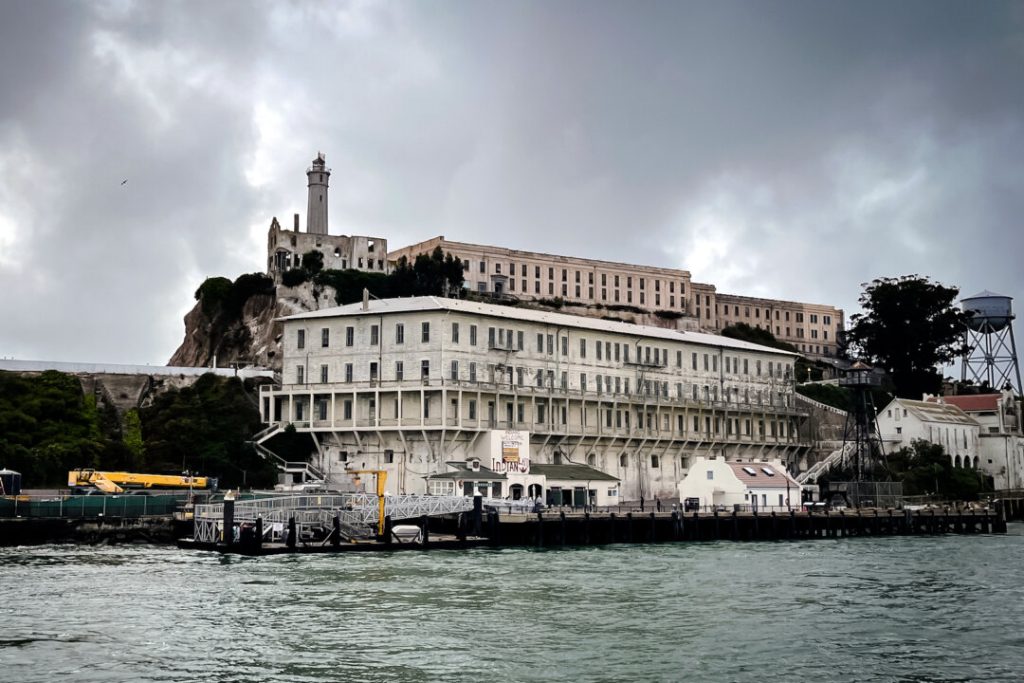Turning Alcatraz Back Into a Prison: A Republican Case
Trump’s plan to convert Alcatraz from a global tourist attraction to a federal prison has been met with support as well as stiff resistance. Conservatives who prioritize law and order see a practical opportunity to relieve pressure on an overstretched prison system while sending a message that federal resources will be used to protect citizens. Opponents talk about history and tourism, but politics should not blind us to national safety and common-sense asset use.
At its core this is a debate about priorities and results, plain and simple. Republicans argue that when federal facilities sit unused or underused, smart stewardship means repurposing them for urgent needs instead of letting bureaucratic inertia and vested interests call the tune. The case being made is not sentimental; it is utilitarian and focused on protecting communities and victims first.
Alcatraz carries a tough-on-crime brand that no modern facility can easily replicate, and that symbolic weight has political value. Isolation, distance from large urban centers, and existing perimeter infrastructure could be leveraged to house high-risk federal inmates in a secure, single location. That practical advantage matters when you consider recidivism, gang influence, and the need to segregate certain offenders for safety.
Federal prison overcrowding is not an abstract problem for prosecutors and prison officials — it affects sentencing credibility, parole decisions, and public confidence in justice. Building new prisons on open land takes years, meets local resistance, and costs far more than adapting existing federal islands and properties. From a budget perspective, reusing Alcatraz might be an efficient short- to medium-term solution if done with strict oversight and clear cost-benefit analysis.
Yes, tourism revenues would shift, and locals will rightly ask how that loss is balanced against public safety gains. The tourism economy is important, but public safety is the baseline for any thriving economy, and there are ways to mitigate negative impacts through targeted economic development and local compensation. Republicans frame this as a tradeoff: either protect communities and deter crime or preserve a novelty at the expense of public security.
Practical and Political Hurdles
The practical obstacles are real: the National Park Service controls Alcatraz, environmental reviews and endangered species rules could slow any transfer, and security upgrades would demand significant upfront investment. Legal title and jurisdiction would require congressional action and executive coordination, so the proposal cannot be executed by fiat and will need a clear legislative path. Republicans should present a tight plan with transparent costs and timelines to neutralize predictable opposition from preservation groups and coastal advocates.
Politically, this proposal will sharpen divides and be painted as punitive by opponents who prefer symbolism over safety. Labor unions, local tourism operators, and progressive lawmakers will push back and seek to raise costs through procedural delays. The winning approach for Republicans is to emphasize efficient governance, accountability, and protections for victims rather than getting dragged into culture-war theatrics that lose focus.
Operationally, converting a tourist site to a federal prison is not trivial; staffing, logistics, and transport present real challenges, especially with a facility separated by water. Federal prison standards would require upgraded housing, medical facilities, and secure transportation corridors that meet Department of Justice requirements. These are solvable problems, but they demand rigorous planning and a commitment to fund the transition without saddling taxpayers with open-ended surprise bills.
There are pragmatic middle paths worth exploring that can reduce political friction while achieving safety goals. Limited-use models, such as a high-security wing, temporary overflow capacity, or phased conversion with ongoing cultural access, could preserve aspects of Alcatraz history while addressing the immediate need for secure detention space. Republicans can advance proposals that show flexibility and an eye toward compromise without abandoning the core law-and-order principle.
Messaging matters as much as logistics, and Republicans should tie the proposal to a clear narrative about protecting victims and enforcing sentences, not punishing culture. Frame the conversion as an act of stewardship: using federal assets to secure communities and make the justice system credible. That narrative reframes the conversation from a partisan stunt to a responsible policy choice with measurable outcomes.
Ultimately, whether Alcatraz becomes a prison again should be decided by sober cost analysis, transparent debate in Congress, and respect for local stakeholders, not by reflexive opposition. If a workable plan can be presented that limits costs, protects historical elements where appropriate, and improves public safety, then it deserves a national conversation. Republicans who care about strong institutions and clear results should be willing to defend bold, practical solutions when they make sense.
